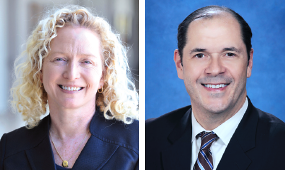Taking Care of Yourself: Good for You and Good for Your Patients

“Nurturing yourself is not selfish—it’s essential to your survival and your well-being.” —Renee Peterson Trudeau
As psychiatrists, we need to follow much of the same advice that we give our patients. That includes exercising, eating a healthy diet, relaxing, spending time with family, and enjoying hobbies—all in a day with only 24 hours. Some people develop such good habits as they grow up and continue practicing them; others become too busy with work. Generations X and Y (Millenials) may have a better sense of balancing home/work or personal/
professional issues than older psychiatrists. Regardless of our age, however, we have to lead by example and can never forget the opportunity—and the obligation—we have to role model, mentor, and create a positive learning environment.
Working in academic psychiatry, community mental health, private, and other settings is fulfilling, but there is no question that the demands of our work can lead to stress and may undermine our sense of well-being, happiness, and joy. A simple definition of well-being is “a good or satisfactory condition of existence; a state characterized by health, happiness, and prosperity,” according to Christina Godfrey, R.N., Ph.D., and colleagues in the February 18, 2011, International Journal of Evidence-Based Healthcare.
Physicians work best when they take care of themselves and feel supported. A significant source of stress may be a mismatch between expectations and the demands of a job. Our ability to cope is determined by our available emotional, physical, and social resources. Coping is an effortful process and depends on numerous resources, including health and energy, positive belief, problem-solving skills, social skills, and social support. Here are some suggestions for improving your coping skills:
Self-reflection and meditation: (1) Reflect with a short reading or a meditation before you get out of bed; (2) take a quick walk midday to clear the confusion and stress; (3) ask for ideas rather than tell others what to do; and (4) take stock at the end of the day to thank someone.
Health and energy: Get regular exercise and sleep. Sleep deprivation affects cognitive, psychological, and physical functioning.
Social skills and support: Act in a meaningful and respectful manner, which helps to be accepted and supported by family, friends, and others. It can provide a buffer that protects against the negative consequences.
Seek help: Ask for help—get a therapist and/or use the hospital wellness committee for advice.
Basic needs: Maslow’s hierarchy of needs leads to fulfillment.
Poor outcomes include physician burnout, depression, and suicide—physicians rarely report these issues freely and seek help, much less regularly see a primary care physician, and downplay basic needs. They may have a negative impact on others in our environment—patients, trainees, and interdisciplinary teams. Interestingly, race, clinical specialty, and being a parent are not found to be significantly associated with positive outcome measures. Female gender was associated with a lower likelihood of balance and career satisfaction, but was not associated with burnout.
Unfortunately, about 15 percent of physicians will develop a substance abuse and/or mental health–related condition. These may include physician depression, neurocognitive impairment, disruptive behavior, and suicide. The prevalence of substance abuse among physicians is comparable to that in the general population, but in terms of suicide, physicians show increased vulnerability.
The health issues of medical students were explored in a large-scale study of physical and mental health concerns at nine U.S. medical schools; 90 percent reported a variety of health concerns, and 47 percent reported at least one issue related to mental health/substance use. Many students fail to obtain necessary care and instead choose maladaptive coping strategies. (See “Perceptions of Academic Vulnerability Associated With Personal Illness: A Study of 1,027 Students at Nine Medical Schools” in the January-February 2001 Comprehensive Psychiatry.)
A confidential, online assessment of stress and depression may help physicians and others get help through employee assistance programs, mental health services, and other resources. A 35-item screening tool developed and licensed by the American Foundation for Suicide Prevention includes questions from the Patient Health Questionnaire-9.
Physicians may benefit from three types of treatment programs: (1) counseling and therapy-related interventions for time-limited issues; (2) clinical programs for psychiatric and substance-related disorders when the physician’s practice is not likely impaired; and (3) monitoring, oversight, and treatment of potentially clinically impaired physicians. Highly structured, monitored treatment programs have high rates of success—about 85 percent at five years.
In summary, we can never forget: our patients, families, trainees, colleagues, and other partners can only “go” as we “go,” and we need to be healthy to “go” well. ■
References
Baldisseri MR. Impaired healthcare professional. Crit Care Med 35:S106–16, 2007
Godfrey CM, Harrison MB, Lysaght R, et al: Care of self - care by other - care of other: the meaning of self-care from research, practice, policy and industry perspectives. Int J Evid Based Healthcare 9:3-24, 2011
Haskins J, Carson JG, Chang CH, et al: The suicide prevention, depression awareness, and clinical engagement program for faculty and residents at the University of California, Davis Health System. Acad Psychiatry 40:23-9, 2016
House JS: Barriers to work stress, I: social support, in Behavioral Medicine: Work, Stress, and Health. Edited by Gentry WD, Benson H, deWolff C. Dordrecht, The Netherlands, Martinus Nijhoff Publishers, 1985, pp 157–180
Maslow AH: Motivation and personality. New York, Harper, 1970
Moutier C, Cornette M, Lehrmann J, et al: When residents need health care: stigma of the patient role. Acad Psychiatry 33:431-41, 2009
Roberts LW, Warner TD, Lyketsos C, et al: Perceptions of academic vulnerability associated with personal illness: a study of 1027 students at nine medical schools. Compr Psychiatry 42:1–15, 2001
Rose J, Campbell M, Skipper G: Prognosis for emergency physician with substance abuse recovery: 5-year outcome study. West J Emerg Med 15:20-5, 2014
Schernhammer ES, Colditz GA: Suicide rates among physicians: a quantitative and gender assessment (meta-analysis). Am J Psychiatry 161:2295–302, 2004



